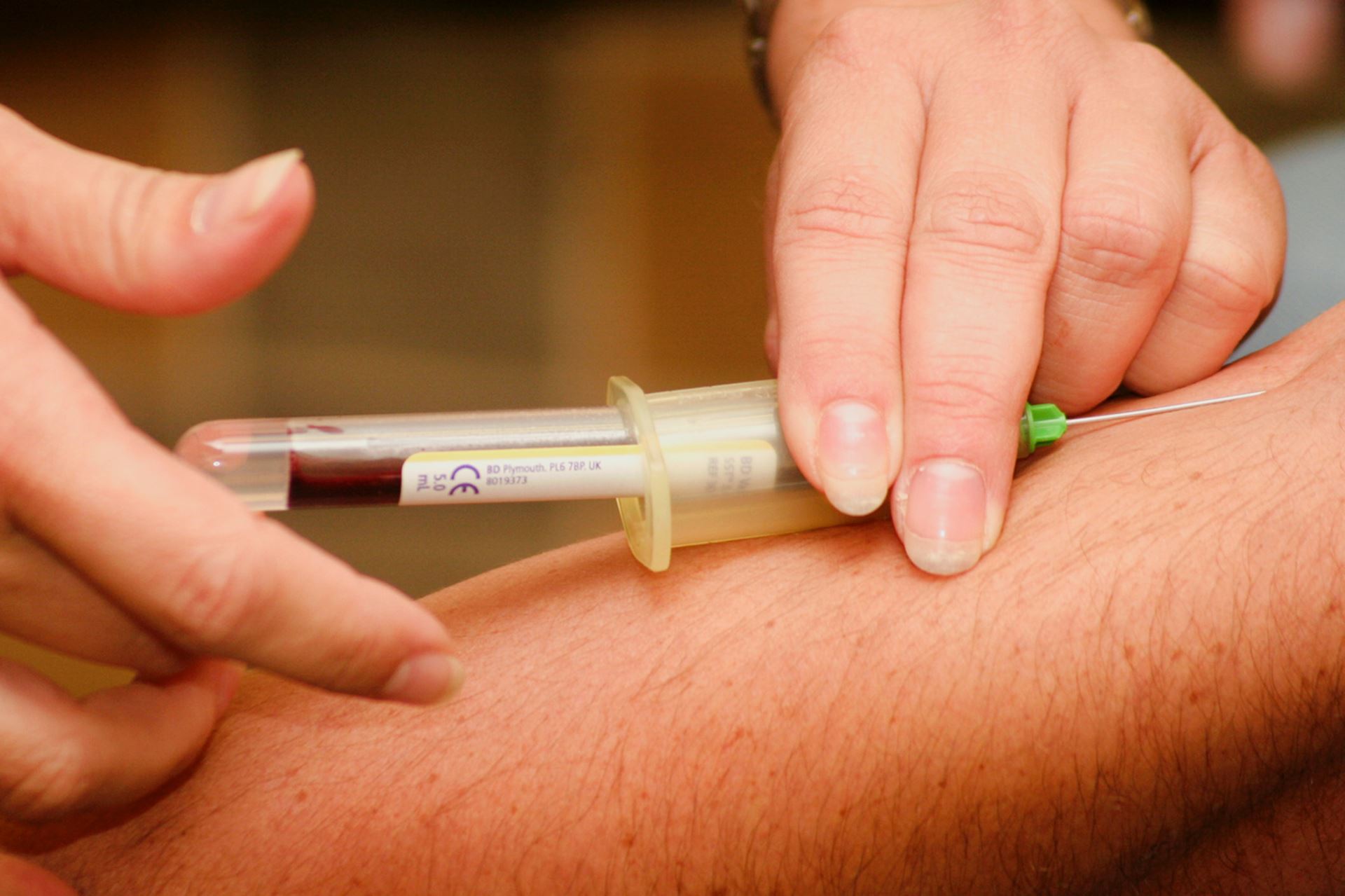Tests & Results
Blood Tests
Blood tests are done by the Practice nurse or healthcare assistant. Blood tests require a morning appointment as the hospital van collection is done before 13:30.
The doctor may request in some cases a fasting blood test, it will be necessary for you to fast from the night before. The receptionist will give you instructions at the time of booking.
A blood test is when a sample of blood is taken for testing in a laboratory. Blood tests have a wide range of uses and are one of the most common types of medical test. For example, a blood test can be used to:
- assess your general state of health
- confirm the presence of a bacterial or viral infection
- see how well certain organs, such as the liver and kidneys, are functioning
A blood test usually involves the phlebotomist taking a blood sample from a blood vessel in your arm and the usual place for a sample is the inside of the elbow or wrist, where the veins are relatively close to the surface. Blood samples from children are most commonly taken from the back of the hand. The childs hand will be anaesthetised (numbed) with a special cream before the sample is taken.
You can find out more about blood tests, their purpose and the way they are performed on the NHS Choices website.

Results of Tests And Investigations
On average please allow 4 working days for your test results to come back from the hospital unless your doctor has advised otherwise. Please note that X-ray results take a little longer, usually about 10 days.
If you have been told to ring for your test results please telephone the surgery between 14:00 and 15:00 Monday, Tuesday and Friday.
Sometimes, we cannot always give full results over the phone. If the result is complicated, or if the doctor wants to see you about the result, we will offer you an appointment. We will only give results to the person who has had the test.
X-Rays
An X-ray is a widely used diagnostic test to examine the inside of the body. X-rays are a very effective way of detecting problems with bones, such as fractures. They can also often identify problems with soft tissue, such as pneumonia or breast cancer.
If you have an X-ray, you will be asked to lie on a table or stand against a surface so that the part of your body being X-rayed is between the X-ray tube and the photographic plate.
An X-ray is usually carried out by a radiographer, a healthcare professional who specialises in using imaging technology, such as X-rays and ultrasound scanners.
You can find out more about x-ray tests, how they are performed, their function and the risks by visiting the NHS Choices website.
Page created: 24 November 2020
